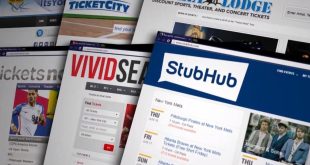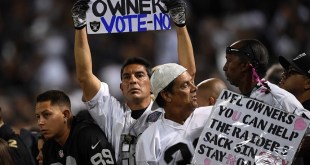The situation is a familiar one for sports, music, and entertainment enthusiasts alike. Fans flock to Ticketmaster or similar ticket-sellers’ websites in advance of The Big Game or The Concert of the Decade. Mere seconds after the tickets go on sale, however, the event sells out, leaving many diehards ticketless. If it doesn’t seem humanly possible for a 60,000-seat venue to sell out in less than a minute, it’s because it isn’t. A growing trend among ticket brokers is the use of automated ticket-purchasing software, or ticket bots, to purchase large blocks of tickets to concerts and major sporting events, with the end goal of reselling them at a higher price. Yet in one of his final acts as Commander in Chief, President Barack Obama recently signed into law a measure aimed to curtail these practices, which keep face-value tickets out of the hands of the public.
The Better Online Ticket Sales Act of 2016 (“BOTS Act”), signed into effect last month, bans the use of ticket bots to purchase event tickets. Specifically, the BOTS Act “prohibits the circumvention of a security measure, access control system, or other technological measure on an Internet website or online service of a ticket issuer that is used to enforce posted event ticket purchasing limits or to maintain the integrity of posted online ticket purchasing order rules for a public event with an attendance capacity exceeding 200 persons.”
The Act also prohibits “the sale of or offers to sell an event ticket” obtained through such a circumvention violation “if the seller participated in, had the ability to control, or should have known about the violation.” In other words, under the new law it is now illegal to use software such as bots to bypass any computer security system designed to limit ticket sales to sporting events, Broadway musicals, or other public events with a capacity of more than 200 persons. It is also illegal to resell any tickets than were bought with the help of a ticket bot. Violations of the BOTS Act will be treated as unfair or deceptive acts or practices under the Federal Trade Commission Act, and the law provides authority to the Federal Trade Commission and states to enforce against such violations.
According to a press release from the White House, the BOTS Act “ensures equitable consumer access to tickets for certain events.” Or, as the bill’s sponsor New York Senator Chuck Schumer put it more bluntly, “By eliminating ‘bots’ and slapping hackers with a hefty fine, we can better ensure those who want to attend shows in the future will not have to pay outrageous, unfair prices.”
The timing of the BOTS Act is no coincidence. In 2013, Ticketmaster estimated that bots sometimes purchase more than 60 percent of the tickets for a given event. More recently, the unscrupulous practice achieved widespread awareness following the astronomically high prices for the blockbuster Broadway musical Hamilton, for which tickets were selling for 15 times their original price. Not merely limited to concerts or theater, secondary ticket prices also soared for sporting events like UFC 205, the first mixed martial arts fight ever held at Madison Square Garden. Although the original face value of the tickets made available to the public ranged from $106 to $1,500, the average resale asking price on the secondary market skyrocketed to $2,093, according to TicketIQ, with some tickets being listed for as much as $25,000 apiece.
With consumers becoming increasingly frustrated by rising ticket prices, New York Attorney General Eric Schneiderman issued a 44-page report earlier last year titled “Obstructed View: What’s Preventing New Yorkers From Getting Tickets.” In the report, the attorney general purports to have uncovered widespread abuses in how tickets to sports and entertainment events in New York are sold and resold. As a result, New York passed new legislation last November, beefing up its own state laws against the use of ticket bots and joining the ranks of various other states such as California and Florida in establishing steep penalties for violators, including fines and potential jail time.
While the recent crackdown on ticket bots is commendable, enforcement may pose a more difficult problem. The BOTS Act, for example, authorizes “the states” to enforce violations. Many states have had state laws prohibiting the use of ticket bots on their books for years. But jurisdictional issues – such as practicably pursuing charges against out-of-state brokers – have often posed problems. It is also uncertain whether the Federal Trade Commission, which is also authorized to enforce the BOTS Act, has the appetite to chase often difficult-to-track scalping activities. Moreover, law enforcement officials, who do not have unauthorized access to private ticket brokers’ servers, will require the cooperation of primary and secondary ticket resellers. As before, the burden may in effect still fall on sellers such as Ticketmaster and StubHub to report to officials when someone attempts to circumvent the sites’ ticket-purchasing limits or rules, a predicate act to sustain a charge under the BOTS Act.
Still, supporters of the BOTS Act believe it could aid law enforcement in ways that were unavailable before. For example, in 2010, federal prosecutors charged a group of men operating as Wiseguy Tickets with fraud for evading online ticketing safeguards in acquiring more than a million tickets that were resold for $25 million in profit. But the case hinged on whether the men had violated federal laws or merely run afoul of Ticketmaster’s terms of service, and the Wiseguy operators received only probation. The BOTS Act now offers prosecutors – both at the state and federal level – an additional legal resource in their fight against illegal scalping activities. The law, with its harsher civil penalties, may also serve as a deterrent against potential violators.
In an era where it’s become increasingly more difficult and expensive to attend live events, organizers have needed to be diligent in their efforts to enhance the in-person experience. For stadiums, that’s taken the form of more fan-friendly improvements such as increased wireless connectivity, point-of-service systems, and cheaper concessions. Teams have also taken it upon themselves to protect consumers who wish to attend a game. For example, the Chicago Cubs, in an effort to curtail counterfeit tickets, recently announced a new policy whereby ticket holders will now only be able to use team-issued printed tickets or the Major League Baseball app to gain access to Wrigley Field on game days. Fans will no longer be able to use “print-at-home” paper tickets, which had increasingly been targeted by counterfeiters as an easy way to create phony tickets.[i] The BOTS Act continues this trend of protecting event-goers. Although the passage of the Act itself doesn’t mean fans are guaranteed to get U.S. Open Finals tickets when they go on sale, it does help to ensure that diehards won’t be competing with machines to get a place in line.
[i] Some artists, teams, and venues have taken to combating unfair competition from professional scalpers by instituting a Credit Card Entry (“CCE”) policy. In lieu of bringing printed tickets to an event, CCE — also called “paperless tickets” — requires a ticket purchaser to bring the credit card used to buy the event tickets, along with a photo ID, to the venue. The purchaser presents the credit card and ID at the entrance, and they’ll swipe it to find the purchase and print a seat locator slip. Resale and transfer of paperless tickets under such a policy is often limited, which makes the use of bulk ticket-buying software like bots far less appealing to scalpers.
 The Sports Esquires Putting Sports on Trial
The Sports Esquires Putting Sports on Trial




One comment
Pingback: Sports Law Links - The Sports Esquires